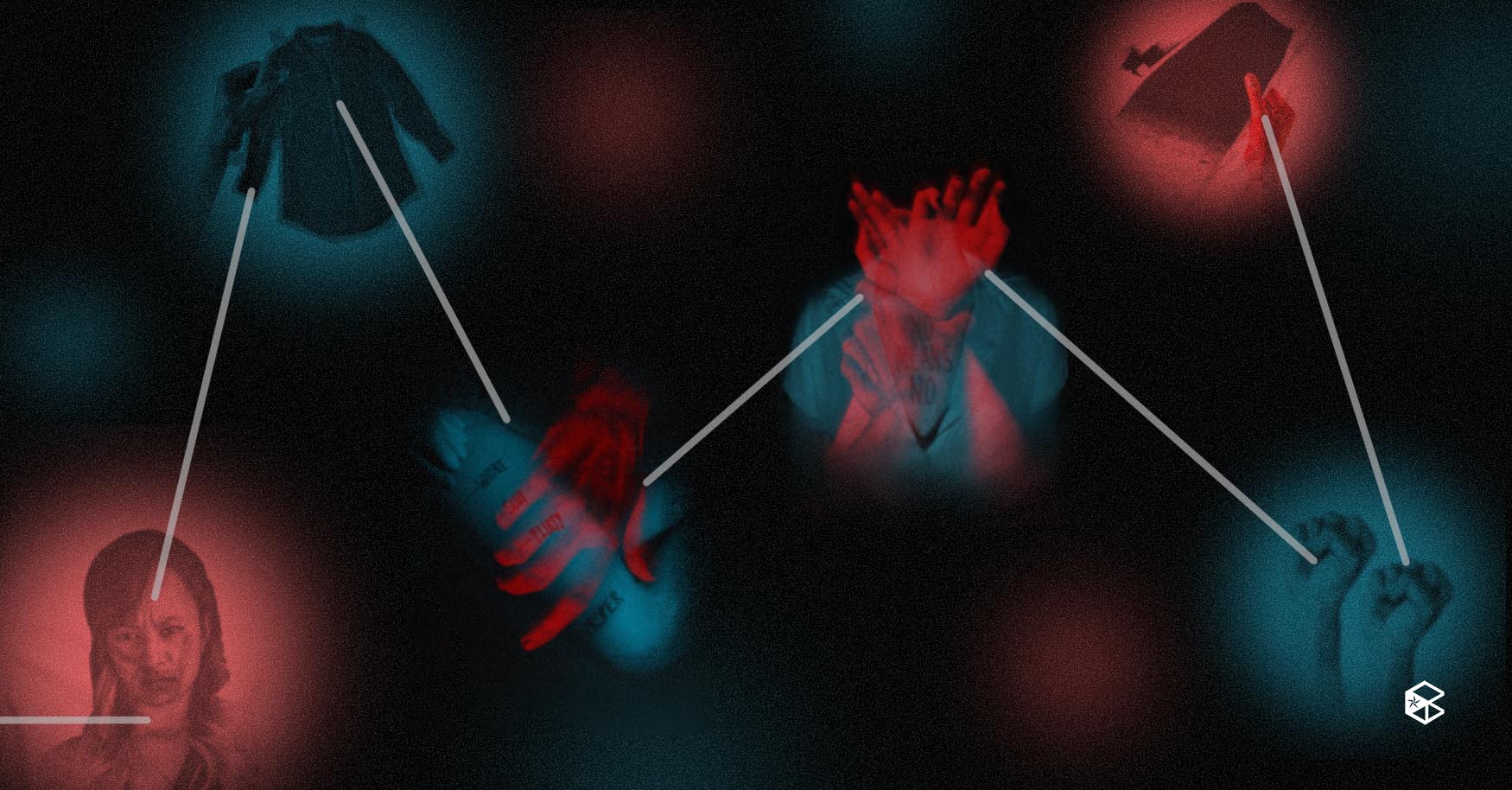Internet-based advocacy movement #HijaAko sparked a conversation to fight and end one of the most prevalent red flags within Filipino culture: the blatant disregard and internalization of rape.
Despite ranking number 16 out of 154 countries as a gender equal country in 2019, the reality in the Philippines is a whole nother topic altogether—one where cases of gender-based violence are near impunity and victim-blaming continues. Sexual violence remains unreported, brushed aside, and increasing; even the international movement #MeToo was not enough to inspire action.
Headliner cases such as dancer and actress Pepsi Paloma, former rising TV star Maggie de la Riva, model and host Kat Alano and anchor Gretchen Fullido’s issues remain controversial; exemplifying how often women are objectified, taken advantage of, left scarred for life, and rarely given justice.
Taking the stand
#HijaAko started as a hashtag used by budding musician and activist Frankie Pangilinan, after a heated exchange with TV host Ben Tulfo on Twitter about Pangilinan’s criticism of a Facebook post last June 14 by the Lucban Municipal Police Station which told women to dress appropriately to avoid getting harassed. This sparked support from netizens for Pangilinan, daughter of actress Sharon Cuneta and Senator Kiko Pangilinan, inspiring young girls and women to come forward with their stories and call out their harassers.
In an interview with The Benildean, Senator Risa Hontiveros, Safe Spaces Act (RA 11313) author, said, “#HijaAko has deconstructed this archaic notion that there’s no wisdom in youth or that respect can only be accorded to our elders. This growing movement has been able to show the agency and fortitude of today’s young women in fighting for what is right.”
“Even through anguish, the female voices that form #HijaAko are powered by courage, one whose effects will reverberate so long as we continue to persist,” Hontiveros added. "Social media also revealed the magnitude of the problem as there was an overwhelming number of stories from across the Philippines that we would see circulating online as well as cases that were sent to my social networking accounts."
Stories that shouldn't have happened
Even young children are preyed upon by merciless predators. A 5-year-old girl in Cadiz, Negros Occidental identified the local parish priest as her frequent abuser. The girl testified in court; calling on Pope Francis' vow of an all-out war against sexual harassment across the Catholic world. The priest in question has been suspended from his duties, and the case is still ongoing.
Furthermore, many women have come forward on social media with stories of authority figures in educational institutions who excuse inappropriate touching and behavior as “fatherly” gestures.
“[Schools] should be a place where we all feel safe and dignified with the moral protection and guidance of our teachers,” Carlos David Navarro, President of Catch Me, a Benilde student group which stands against all harassment, emphasized in an interview with The Benildean.
“It is with great disappointment that those teachers who are deemed to cure terrorism are the perpetrators of sexual harassment,” Navarro expressed.
In partnership with the Office of Student Behavior (OSB), Catch Me, according to Navarro, provides ASH (Anti-Sexual Harassment) seminars in line with in-school OJT orientations for graduating Benildean students on the awareness and prevention.
Harassment is rampant even in industries and workplaces. In November 2018, Miss Earth pageant contestants Jaime VandenBerg, Abbey-Anne Gyles-Brown and Emma Mae Sheedy spoke out against pageant sponsor Amando Cruz for offering extravagant proposals to participants in exchange for sexual favors.
Will not go in vain
“Perpetrators are tolerated and even lauded rather than litigated. It is time to remove the stigma we ought to have towards these helpless victims and unfasten the victim-blaming attitude that is deeply embedded within the fabric of our society,” Navarro stated.
"It is time that we fight the battle of those who are not able to, simply because they are scared. It is about time that we tell our fellow countrymen that harassment in all its forms is acutely “normalized” by some, making it part of their pagkalalaki or pagkatao,” he added.
More than ever, proper implementation of the Safe Spaces Act is necessary as it aims to penalize harassment and ensure protection against harassment within public and online spaces.
“The filing of the Safe Spaces Act was a reaction to the growing reports of sexual harassment cases in the country. The Bawal Bastos Law is closely related to the first Anti-Sexual Harassment Act (RA 7877) of 1995, but we saw that the old law did not protect Filipinos from the current context of rapid technological changes and the prevalence of sexual harassment in public spaces.” Hontiveros said.
In light of this movement, various groups and organizations offer both legal services and support for survivors. Lunas Collective, Bantay Bastos, and Young Feminist Collective are among the online communities Hontiveros mentioned.
"Having a community where one can share experiences and be understood also does help in reassuring that you are not alone in this fight,” the Senator added.
Meanwhile, women’s rights group Gabriela has launched their Anti-Harassment chatbot “Gabbie” on Facebook in 2017 as virtual support to aid in filing complaints and to provide awareness on laws that protect women.
In terms of reporting the incident, the answers compiled from the details given by the user will be inputted in a Harassment Form which can be downloaded and submitted to lawyers and human resource departments, LGUs, or directly to Gabriela. On the other hand, the user can message Gabbie to stay informed for it is information-coded with the country's legislations regarding violence against women.
“Sexual harassment is often laden with shame and guilt, and talking to someone can often help unthread the confusion and ease the pain," Hontiveros emphasized.
#HijaAko testifies how one voice can stand up to the rotten mindset society has imposed. With this movement, a new era arises, and the once silenced now amplify their cry for justice—not because they are just women, but rather because they are.


